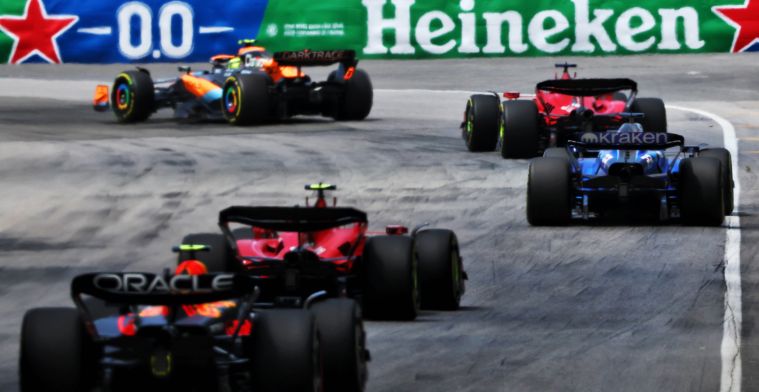Tech

Weight reduction of F1 cars: 'Not at the expense of safety'
Formula and the FIA are in favour of making Formula 1 cars lighter. There is even speculation of a fifty-kilometre weight reduction. This would make the cars 'less stiff'. The teams would like to see the cars become lighter (subject to conditions), but also have doubts about the feasibility of the idea: "Looks quite ambitious."
The engine regulations from 2026 are already fixed, but the rules for the chassis are still being worked on. One important point on which F1 and the FIA at least already agree is the weight of the cars. That has to come down, say Stefano Domenicali (CEO F1) and Mohammed Ben Sulayem (FIA president). They point out that lighter cars are safer and consume less fuel.
'New rules quite tricky'
James Allison, Mercedes' technical man, agrees with Domenicali and Ben Sulayem. The Briton said in Montreal: "He's not alone in thinking that this sort of inexorable upward trend in weight is something that has to be arrested and then reversed. Because, you know, year-on-year they were getting heavier," Allison told the media. At the same time, he realised the magnitude of the challenge of achieving a reduction. "It is particularly tricky to dream up technical rules that are going to make the car much lighter. The way to make it lighter, I think, is to lower the weight limit and make it our problem. If cars are over the limit, then it forces us all to make some fairly difficult decisions about what we put in our cars and what we don't. But not everyone agrees with that point of view. But that's sort of, I think, the most guaranteed way to put downward pressure on the weight of the car."
Pierre Waché, technical director of Red Bull Racing, did broadly agree with his colleague. He added an important point: "I think the power unit that is defined now [for ‘26] is already massively heavier than what we currently have. I think to make it significantly lighter, as mentioned by Stefano, it will be very, very difficult."
'Safety must not be compromised'
So is a lighter car realistic? "I think reducing by 50 kilograms looks quite ambitious, without very significant technical changes, which I don't think at the moment are under consideration," Andrea Stella, McLaren team boss in Canada, responded. "Some of the weight that has been added comes from measures that have to do with safety. Like, if we think even next year, there will be an enforcement of safety associated with the roll hoop. So, in a way we welcome this kind of mass that has been added to the cars."
Stella realised that this has changed the nature of Formula 1, compared to, say, 20 years ago. "From what it was 20 years ago, where it was a 200 kilogram lighter car. If anything, cars are quicker now, thanks to the downforce and the big tyres. So, I think retaining the current weight, or reducing by a few kilograms is already a good result. It needs smaller tyres and smaller cars to be able to reduce it significantly. So, yeah, we will see, I'm not sure what the direction of travel is at the moment, but we all would welcome lighter cars, but certainly not at the expense of safety."



















































